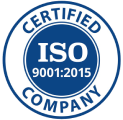Filing a Counter Statement for Trademark Opposition Service
Starting from ₹8,000 + GST




Table Of Content
Filing a Counter Statement for Trademark Opposition
Protecting intellectual property rights is essential for safeguarding business identity and brand value. A trademark represents the uniqueness and credibility of a business. However, the process of registering a trademark is not always straightforward, as third parties can oppose the application if they believe the trademark infringes on their rights or fails to meet legal requirements. This is known as trademark opposition, a formal challenge to a trademark’s registration.
In response, the applicant can file a Counter Statement, which is a legal document addressing the objections raised in the Notice of Opposition. The counter statement is crucial for defending the trademark application, negating the opponent’s claims, and justifying why the trademark should proceed to registration. Understanding this process is key to successfully navigating trademark opposition cases and ensuring the continued protection of your intellectual property.
Benefits of Filing a Counter Statement
Eligibility for Filing a Counter Statement
Process to File a Counter Statement for Trademark Opposition
Step 1
Study the Notice of Opposition
Analyze the objections thoroughly to identify key issues such as similarity to existing trademarks or non-compliance with laws.
Step 2
Consult a Trademark Attorney
Seek advice from an experienced attorney to analyze objections and draft an effective counter statement.
Step 3
Draft the Counter Statement
Respond to each objection with legal arguments, evidence, and facts that support your trademark application.
Step 4
Complete Form TM-O
Fill out Form TM-O accurately and pay the required fee based on the applicant type (individual, startup, or company).
Step 5
Submit the Counter Statement
File the counter statement and Form TM-O at the Trademark Registry within the stipulated deadline.
Step 6
Await Registry Scrutiny
The Trademark Registry will examine the documents and may schedule hearings if the opposition continues.
Documents Required for Filing a Counter Statement
FAQs
What is trademark opposition?
Trademark opposition is a legal procedure where a third party challenges the registration of a trademark. This process begins after a trademark application is published in the Trademark Journal, giving the public a chance to oppose the application if they believe it conflicts with their existing rights or violates legal standards. Common reasons for opposition include similarity to an existing trademark, lack of distinctiveness, or non-compliance with trademark laws.
What is a counter statement?
A counter statement is a formal written response filed by the trademark applicant in reaction to a Notice of Opposition. It serves as a defense to refute the claims made by the opposing party, providing evidence and arguments to support the continuation of the trademark registration process.
Why is Form TM-O important?
Form TM-O is the official document required for filing a counter statement or responding to objections in trademark opposition cases. It ensures that the counter statement is formally registered with the Trademark Registry. Without this form, the counter statement cannot be processed, making it a critical part of the procedure.
Can I file a counter statement without a lawyer?
Yes, an applicant can file a counter statement independently. However, consulting a trademark attorney is highly recommended. A legal expert can draft a comprehensive and effective counter statement, ensuring all objections are addressed accurately and in compliance with trademark law.
What is the deadline for filing a counter statement?
The counter statement must be filed within two months from the date of receipt of the Notice of Opposition. Missing this deadline may lead to the trademark application being considered abandoned.
Can the filing deadline be extended?
Yes, an extension can be requested by filing an application with the Trademark Registry. The extension is granted only if valid reasons are provided, and the request must be made before the original deadline expires.
What happens if I miss the deadline?
If the deadline is missed, the trademark application is considered abandoned. This means the applicant forfeits the opportunity to register the trademark unless exceptional circumstances allow for a special appeal.
What happens after filing the counter statement?
Once the counter statement is filed, the opposition process moves to the hearing stage. The Trademark Registry reviews the documents submitted by both parties, and a hearing may be scheduled. During the hearing, both sides present their arguments, and the registry evaluates the merits of the case.
Who investigates the opposition case?
The opposition case is investigated and managed by the Trademark Registry, which is responsible for ensuring a fair evaluation of the evidence and arguments presented by both parties.
Is the opposition process public?
Yes, the opposition process is public. All related records, including the Notice of Opposition and counter statement, are maintained by the Trademark Registry and can be accessed by anyone interested in reviewing the case.
What evidence supports a trademark application?
Evidence to support a trademark application includes:
- Proof of trademark usage (e.g., product packaging, labels, or advertisements).
- Marketing materials showing the distinctiveness of the trademark.
- Sales records or invoices demonstrating the trademark’s use in commerce.
Can additional evidence be submitted later?
Yes, additional evidence can be submitted during the hearing stage, provided it complies with the procedural rules set by the Trademark Registry. This allows applicants to strengthen their case with updated or supplementary documentation.
Can opposition cases be settled out of court?
Yes, opposition cases can be resolved without proceeding to a hearing. Both parties can negotiate and reach an agreement to settle the dispute. This is often a quicker and less expensive resolution compared to legal proceedings.
